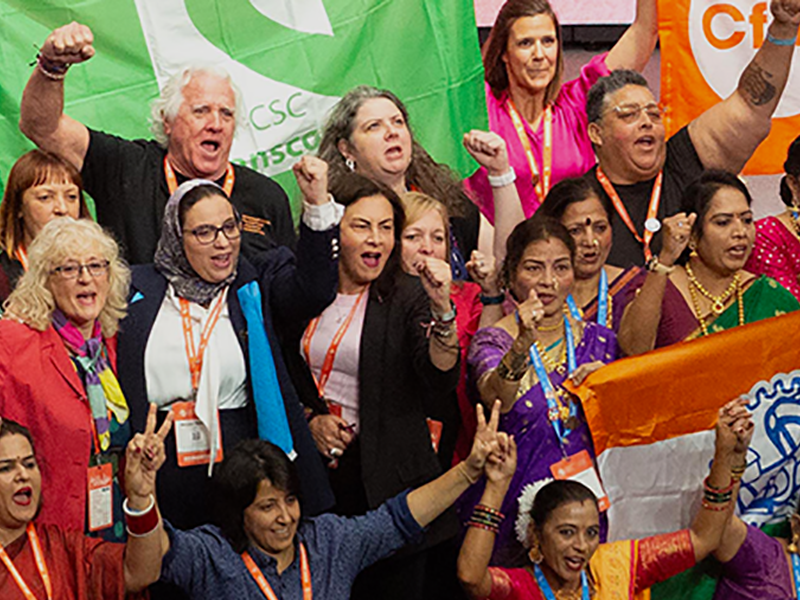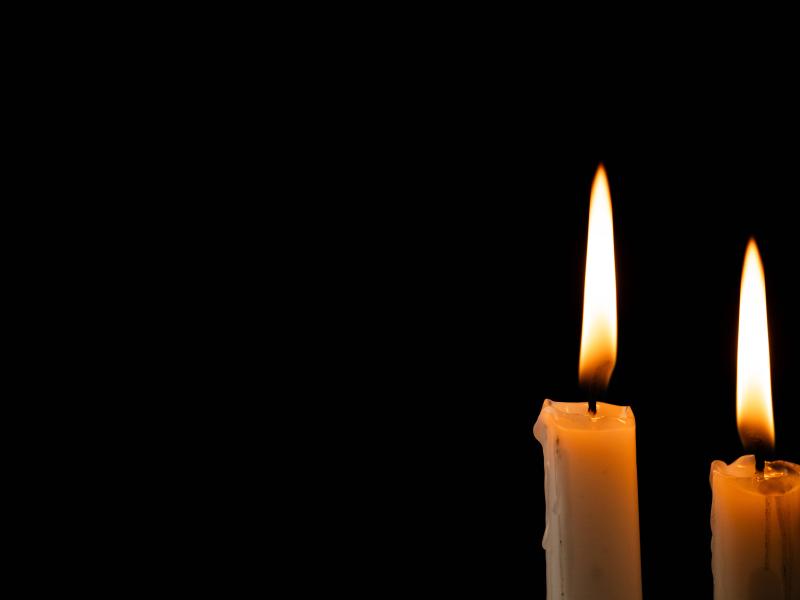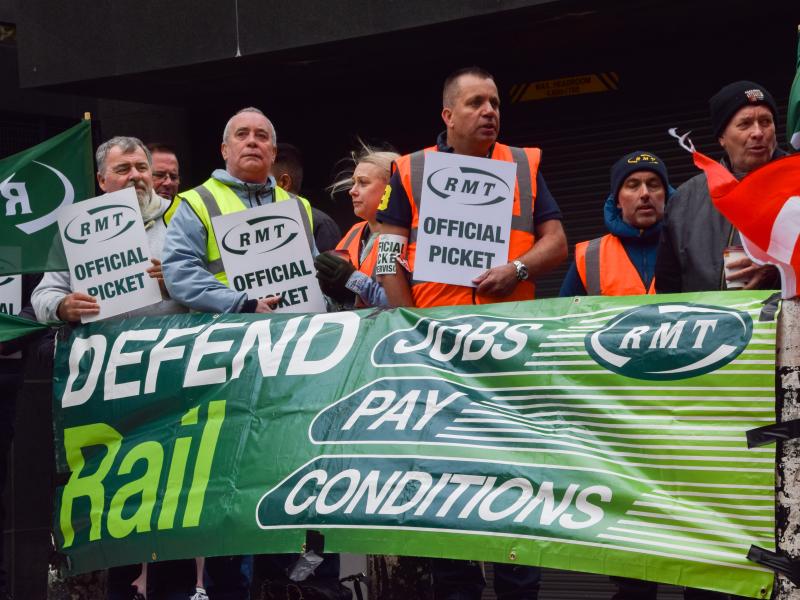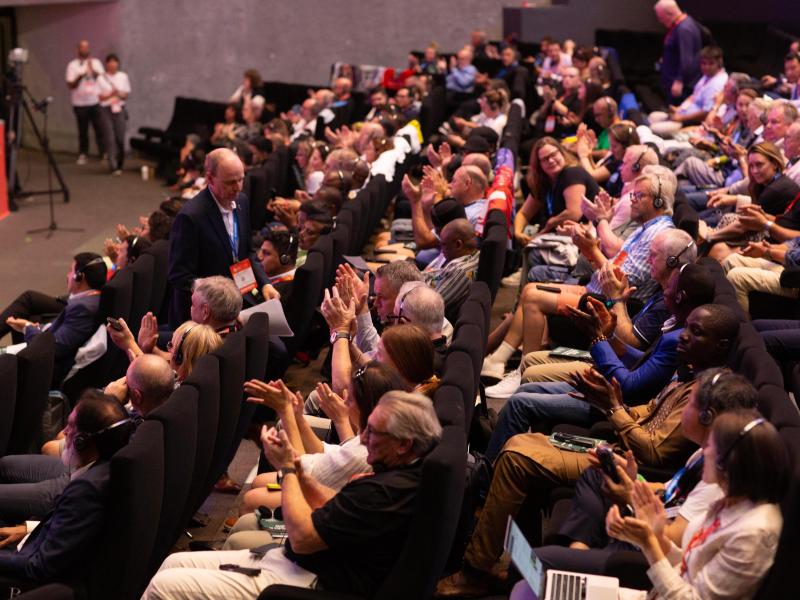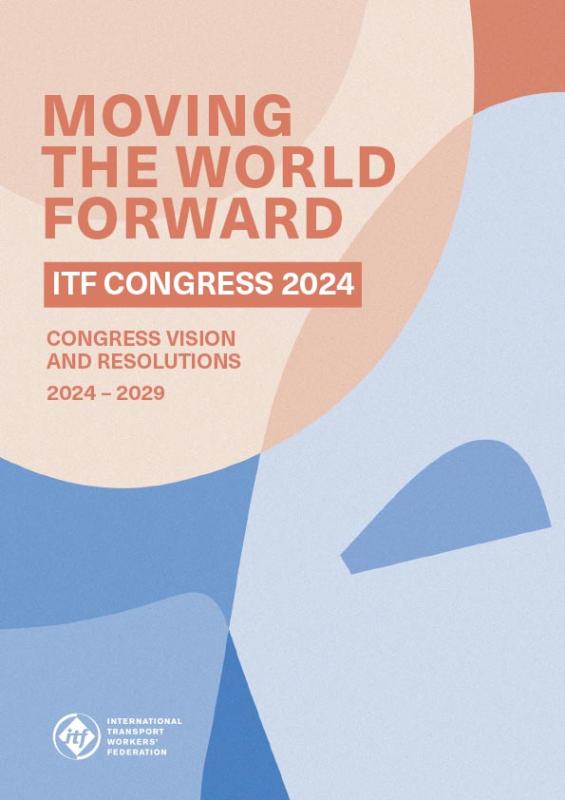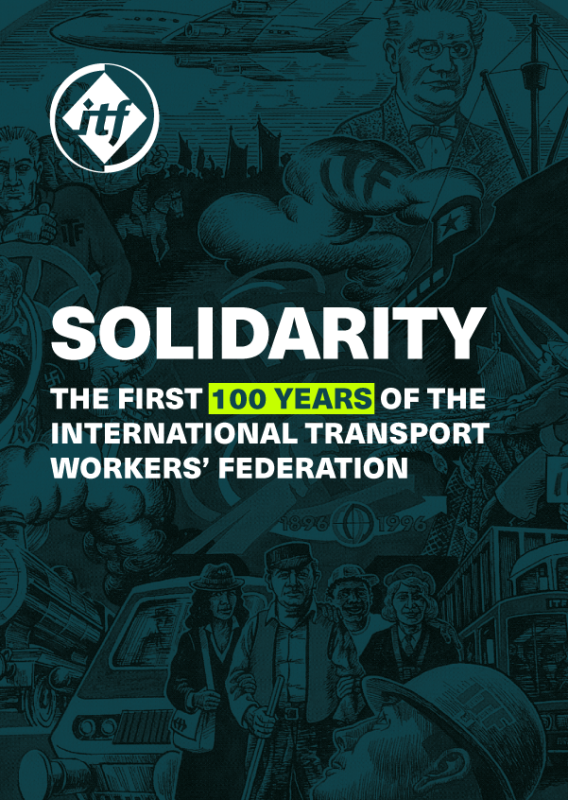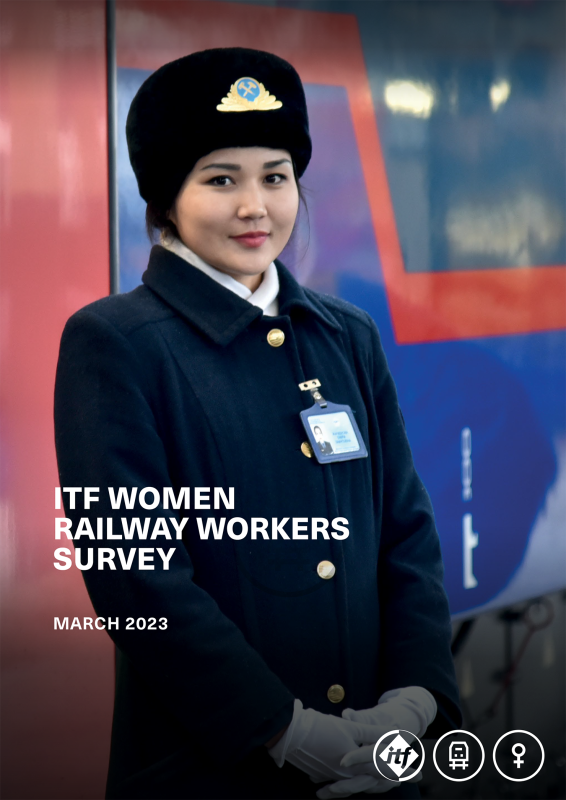Cheminots
Représenter les cheminots partout dans le monde
Le terme « cheminots » englobe les conducteurs de trains, les mécaniciens, les garde-barrières, les contrôleurs, le personnel de la signalisation, le personnel du triage, les aiguilleurs, le personnel de l’entretien du matériel roulant et des voies, les agents d’entretien et le personnel de la restauration, de la billetterie et du service clientèle. Nous nous battons pour le droit des cheminots au travers de : campagnes, initiatives d’éducation, projets de recherche, actions de solidarité
Nous échangeons des informations et coordonnons des actions pour lutter contre les conséquences néfastes de la restructuration, de la privatisation et de l’externalisation. Vous trouverez ci-dessous des informations complémentaires sur notre action.
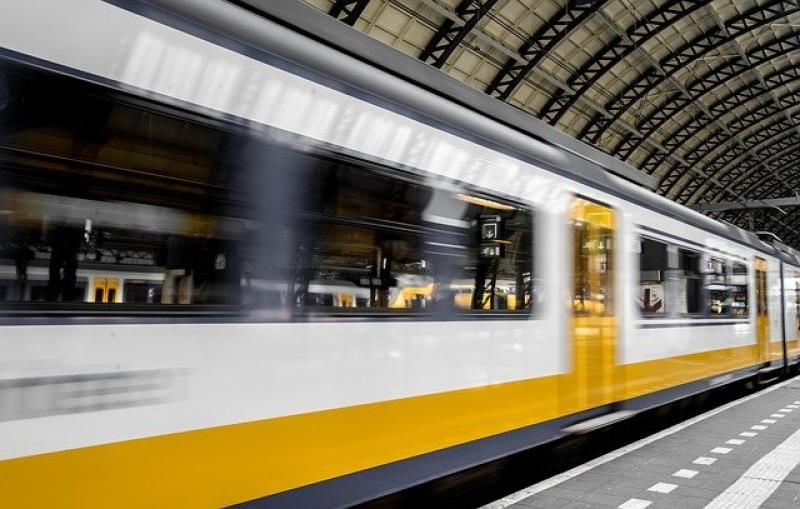
The ITF railway workers’ section brings together affiliated unions from around the world defend jobs and promote safety for all. Following the restructuring of railway systems, our united focus is on:
- responding to the impact of changing jobs, working conditions and trade union rights
- promoting railway safety and organising railway workers across the industry
- advocating for public investment in the development of railways to ensure decent working conditions and permanent work
- building union capacity for negotiating with employers, governments and international institutions
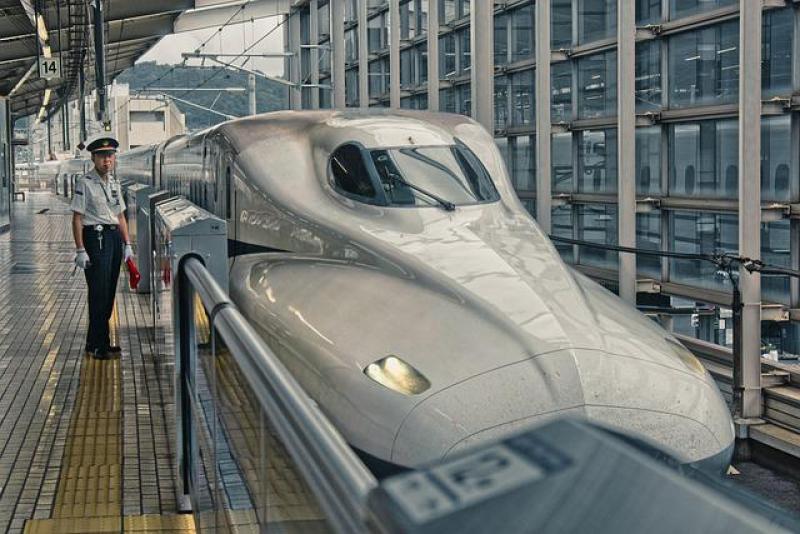
The ITF has a vision for Safe and Sustainable Railways for All.
- Safety - Railways that are properly staffed are safer, whether that’s at the station, on the train, or in other essential areas like maintenance and repairs.
- Accessibility - Railways that are properly staffed are not only safer but are also more accessible for those with mobility issues, including older people and people with disabilities.
- Sustainability - Train travel is one of the most environmentally efficient modes of transport. Investment in rail infrastructure including trains that use clean energy is essential for tackling climate change. Rail workers must have a say in the introduction of new technology and be protected through a just transition.
- Public Ownership - Railways should be publicly owned and accountable. The primary interest of private operators is profit, not the social good.
Les dernières actualités sur les enjeux qui nous concernent toutes et tous, et les actions que nous menons pour améliorer le quotidien et l’avenir des travailleuses et travailleurs.
Journée internationale de commémoration des travailleuses et des travailleurs morts ou blessés au travail 2025 : Honorer les morts, se battre pour les vivants
Renationalisation du rail britannique : la voix des syndicats
Les cheminots se mobilisent pour un avenir sûr et durable
Vision et Résolutions du Congrès 2024-2029
SOLIDARITÉ – LES 100 PREMIÈRES ANNÉES DE L’ITF
Enquête de l'ITF auprès des travailleuses du secteur ferroviaire

Julio Adolfo Sosa
Muhammed Naseem Rao
C A Rajasridhar
Raul Sengo
Simi Laisingh
Preeti Singh
Innocent Luka Ajiji
Mahamame Thienta
Judith Lusaka
Ahmed Rachid Sennouni
Lounis Saidi
Thouraya Dilou
Mohammed Qasim Bani Asad
Alex Claassens
Pinyo Rueanpetch
Todd Valster
Hideki Fukuda
Banpot Sungkasuk
Divya Sharma
Gerhard Tauchner
Helena Svobodová
Audun Sør-Reime
Christian Tschigg
Jolanta Skalska
Eda Forner
David Gobé
Julian Ariel Sosa Cappello
Francisco Aparecido Felicio
Roger Alvarado Santeliz
Karina Fabiana Benemerito
Joel Kennedy
Arthur P Maratea
Alex Gordon
Vacant

The ITF Railways Section has 141 affiliates from 83 countries representing over 1,750,000 workers.


